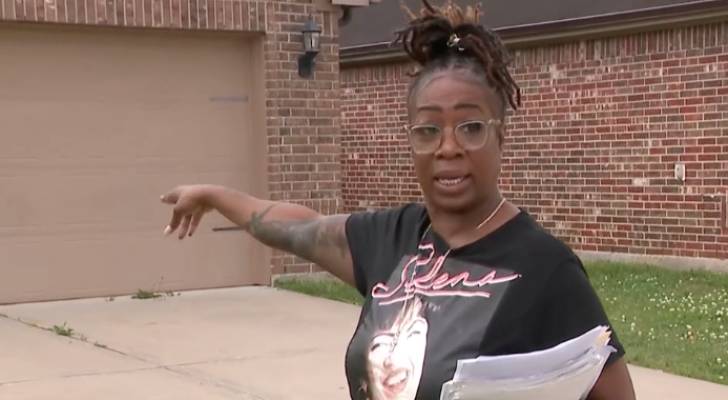
What happens when your tenants are driving you to financial ruin, but you can’t kick them out during an ongoing eviction battle?
That’s the problem faced by property owner Akosua Danquah in Iowa Colony, Texas. Her tenants stopped paying rent and called the police when she tried to check on her home. Though she’s trying to get them evicted, the process is time-consuming — and it’s driving her toward bankruptcy.
Don’t miss
- I’m 49 years old and have nothing saved for retirement — what should I do? Don’t panic. Here are 5 of the easiest ways you can catch up (and fast)
- Gain potential quarterly income through this $1B private real estate fund — even if you’re not a millionaire. Here’s how to get started with as little as $10
- Robert Kiyosaki warns of a ‘Greater Depression’ coming to the US — with millions of Americans going poor. But he says these 2 ‘easy-money’ assets will bring in ‘great wealth’. How to get in now
“I can’t even come to my home,” Danquah told KHOU-11 News. “This is the most disheartening thing you can imagine.”
An ongoing eviction battle
Danquah decided to rent out her home after accepting a job out of state. In January, her tenants stopped paying rent so she gave them a notice of eviction. But after going to her local justice of the peace court to file the eviction, she was told she’d have to wait 30 days.
Then her tenants stopped all communication with her, and when she tried to check on her home, they called the police.
Danquah has had to stay with family and friends since she couldn’t afford to pay both her mortgage and her rent out of state without the rental income from her tenants.
She wishes she had done a background check on the tenants.
“Whenever you take shortcuts when leasing a property, you’re taking chances,” Troy Cothran, treasurer for the Houston Association of Realtors, told KHOU-11 News.
“My recommendation is don’t take any shortcuts when leasing because it’s a business decision that you’re doing.”
Read more: Want an extra $1,300,000 when you retire? Dave Ramsey says this 7-step plan ‘works every single time’ to kill debt, get rich in America — and that ‘anyone’ can do it
How landlords can protect themselves
If you’re looking to rent out your property, start by screening potential tenants. That could include a credit check, background check and/or income verification. You can also ask for references from their employer and previous landlord. If they refuse to do so, that may be a red flag.
Make sure you have a lease agreement that clearly outlines the amount due each month and what will happen if tenants don’t pay their rent on time (including grace periods and late fees). You may want to consult with a real estate lawyer to help you navigate landlord-tenant laws in your state.
You can also ask for a security deposit (due when the tenant signs the lease), which is typically equal to one or two month’s rent. Most states allow landlords to use the security deposit (or a portion of it) to cover unpaid rent, but the rules differ from state to state. This should be outlined in the lease.
If the tenant is late with their rent, reach out with a late rent notice. States have different rules around grace periods. In Texas, for example, landlords aren’t required to provide tenants with a grace period (unless they agree to do so in the lease).
If the tenant still doesn’t pay, you could follow up with a pay-or-quit notice in which you outline a specific time to pay the overdue rent — or move out. (Make sure you understand local and state laws around eviction procedures.)
If the tenant still fails to comply, you can file for eviction with your local court. If the eviction is successful, you may be able to sue for outstanding rent and associated costs.
While landlord insurance isn’t mandatory, it can help to cover financial losses if your tenant doesn’t pay their rent. However, if you have a mortgage on the property, you may be required by your lender to take out a landlord insurance policy.
What to read next
- JPMorgan sees gold soaring to $6,000/ounce — use this 1 simple IRA trick to lock in those potential shiny gains (before it’s too late)
- This is how American car dealers use the ‘4-square method’ to make big profits off you — and how you can ensure you pay a fair price for all your vehicle costs
- Here are 5 ‘must have’ items that Americans (almost) always overpay for — and very quickly regret. How many are hurting you?
Like what you read? Join 200,000+ readers and get the best of Moneywise straight to your inbox every week. Subscribe for free.
This article provides information only and should not be construed as advice. It is provided without warranty of any kind.